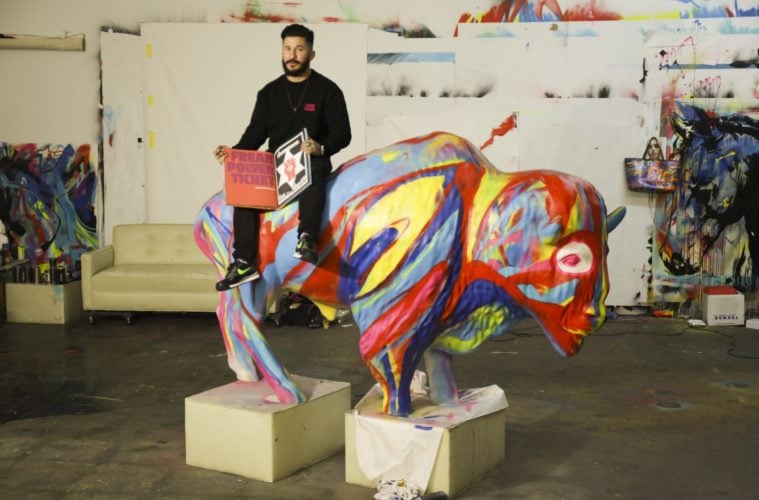After a storied career that helped open the door to the UFC’s lightest men’s weight division a decade ago, perennial 125 pound-contender Ian McCall is using his retirement to spread the good word about psychedelic healing.
Mixed martial artists are no strangers to violent brain injuries. Over the course of a career, they can be inflicted with thousands of blows to the head during years of competition and training.
This led to a variety of neurological issues that have developed amongst the fighters who helped push the sport to its current heights. At one point during the pandemic, it felt like the UFC was the only live thing on TV besides the talking heads of the 24-hour news cycle debating the finer points of the international battle against Covid-19.
One of the men who helped propel the sport to its current hype level is Ian McCall. In the years before the UFC added the 125-pound division, McCall would be considered the best in the world by many great minds. As the division opened up, undersized 135-pound contenders headed down to challenge for the UFC’s newest gold at the time.
Waiting for those contenders in the inaugural tournament to crown a champion was McCall. He would be matched up with Demetrious Johnson, considered by many to be the greatest of all time. After a scoring error in their initial matchup and a fight of the night performance, eventually, the decision would not go McCall’s way.
But regardless, it would mark the start of a polarizing UFC career, that included some jail time over a suspended license and a confusing run-in with the DEA. Telling the sports premier journalists of his past overdoses in 2012 wasn’t unique in MMA but complexified things in a society that heavily stigmatizes substance abuse. Then down the line a visit to Joe Rogan’s podcast featuring tales of a cocky youth would throw gas on the haters’ fury. But through that six-year run, regardless of your opinion of McCall as a human, he was certainly one of the best 125-pound cage fighters on the planet. 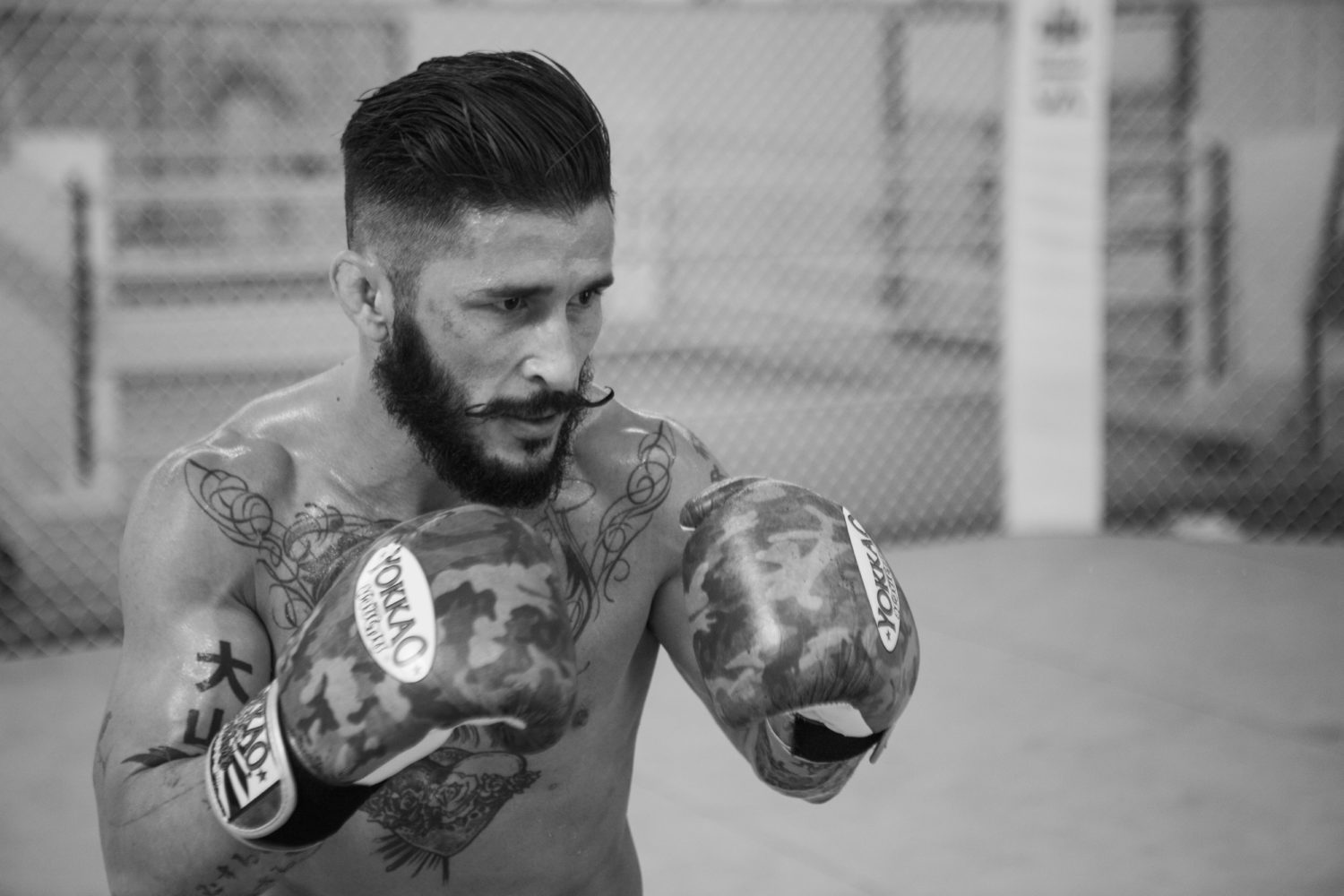
Now, three years removed from retirement, McCall is branding himself as the world’s first psychedelic integration coach for high-level athletes and performers. McCall developed a process he argues pairs self-healing and potential. While the idea was bouncing around in his head for the past five years, the execution began around three years ago as his career in the cage was coming to an end.
“Becoming a world champion in that sport drove me to be an asshole,” McCall told L.A. Weekly. “I was not a good person. I wasn’t happy. It was my trauma coming out in this sport which I made beautiful, but this is my life’s work. That was what I did just because it was an obsession or weird kid on the spectrum that’s good at violence. And my life’s work now? Healing these athletes first, so then they can perform better.”
McCall argues a big part of the process from the start is educational. He explains the healing properties and performance benefits need to be identified clearly to help people achieve a “flow state” as opposed to just getting high recreationally. He believes many psychedelic self-help quests haven’t really dialed in their process.
“And I don’t mean to shame them,” McCall said. “We all just need to learn and I know that even if it’s not my method there are more methods out there that work. I’m just trying to tailor it specifically for fighters which will branch out to everybody.”
When we queried McCall on the actual format of the sessions, he presented it as more of a path than checking the boxes. In those early sessions with a new client, the self-work comes into play. They may microdose on psilocybin or ketamine, and discuss with McCall where they are in that moment in their head as they endure the stress of pushing towards greatness in various endeavors like MMA, bare-knuckle boxing and surfing. 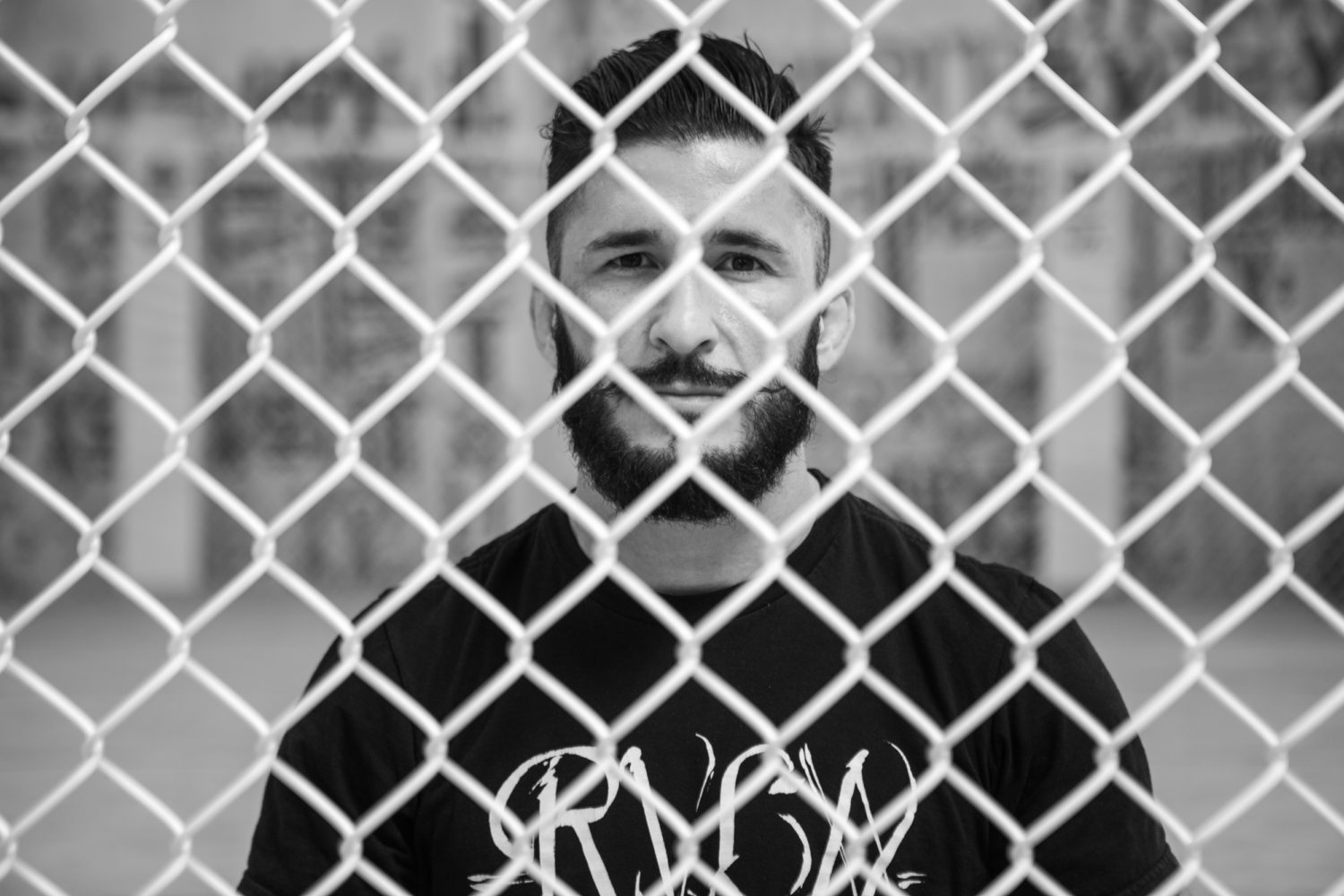
From there, they phase into the performance aspects of the McCall Method. Once they have the personal awareness needed to understand the way the dosing impacts their performance, they can start hunting down that dose that maximizes the flow state where McCall argues athletes will do their best work. The trick is not overdoing it. McCall said he found two grams of mushrooms was his sweet spot.
The process would hit the spotlight as HBO featured McCall working with former UFC fighter and leg lock legend Dean Lister. Eventually, Lister would note the personal successes he had staying away from alcohol and pills following his experience with psilocybin.
While speaking on Lister, McCall noted three years ago he had the idea for a major research study he wanted to pitch Johns Hopkins, but the world wasn’t ready. “Then the pandemic happened. Everyone was stuck inside learning about psychedelics and I had an opportunity to go on HBO and heal a fighter,” McCall said.
The conversation moved into McCall’s own experiences a bit deeper. As noted, McCall was a polarizing figure.
“They helped me chill out a lot,” he noted. “I mean, I’m still of course somewhere on the spectrum. I have that in me but I’ve learned to focus it more and learned how to approach the world in a much better way. No ego, no bad energy.”
McCall found at many points his focus seemed scattered prior to his own work with psychedelics. He believed he was experiencing symptoms of chronic traumatic encephalopathy, and called it a CTE state as opposed to the flow state his program seeks to achieve in others. The symptoms of CTE can include memory loss, confusion, impaired judgment, impulse control problems, aggression, depression, anxiety, and even suicide. McCall said he himself pondered suicide but assured us the one time he did overdose he was just trying to party. 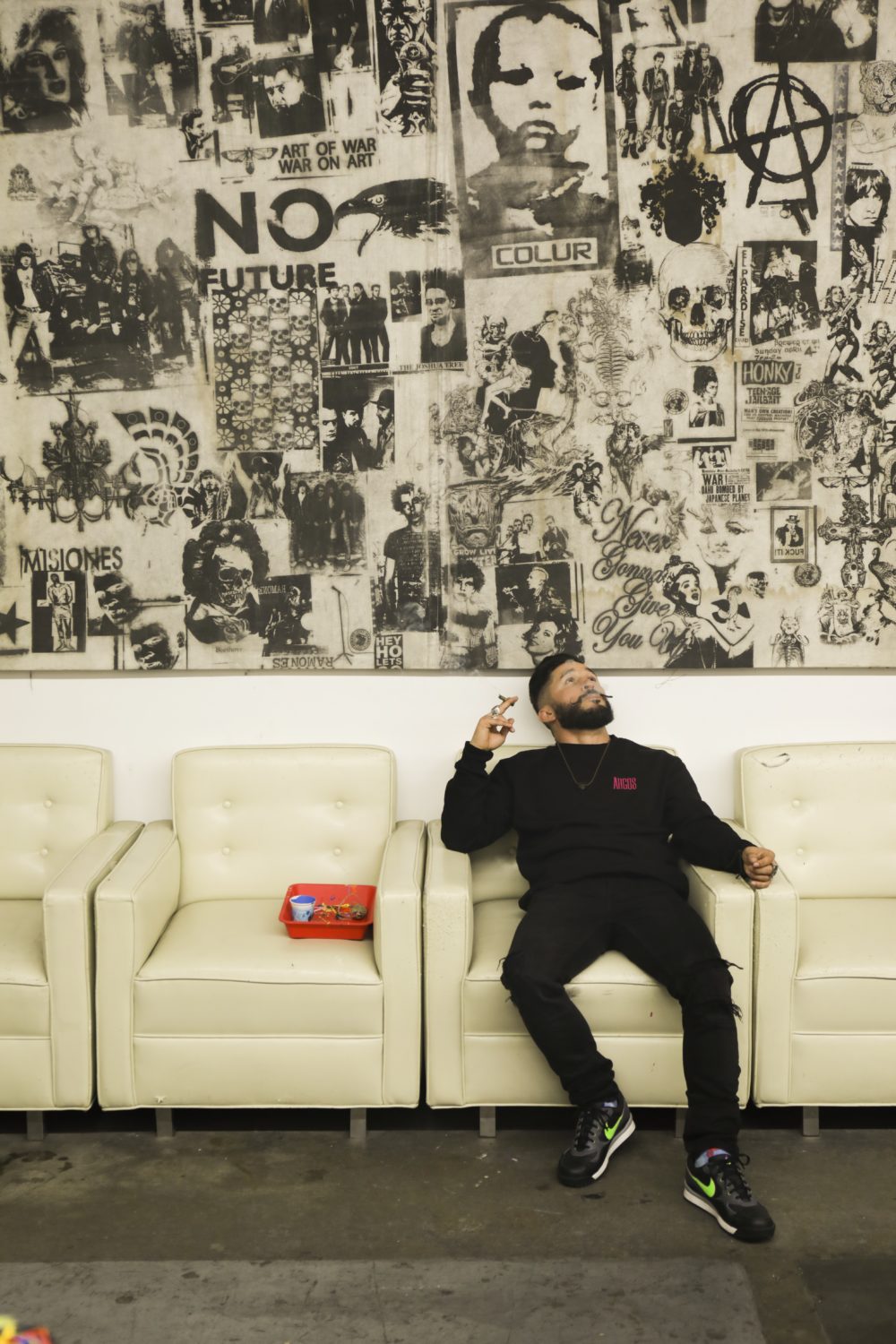
He argues his positive results are the reason he’s alive.
One thing McCall has had in his favor is MMA fighters are on the cutting edge of recovery. We asked if he thought that made the program more palatable to his peers.
“Yes,” McCall replied, before noting the UFC itself is taking the health of fighters a lot more seriously than they did when he first entered the organization, as seen by its new $200 million dollar performance institute.
The brand McCall founded to push his new life mission is called Argos. It’s named after the ship Jason and The Argonauts used to recover the Golden Fleece in Greek Mythology. The company is now dipping its toes into psilocybin isolates. 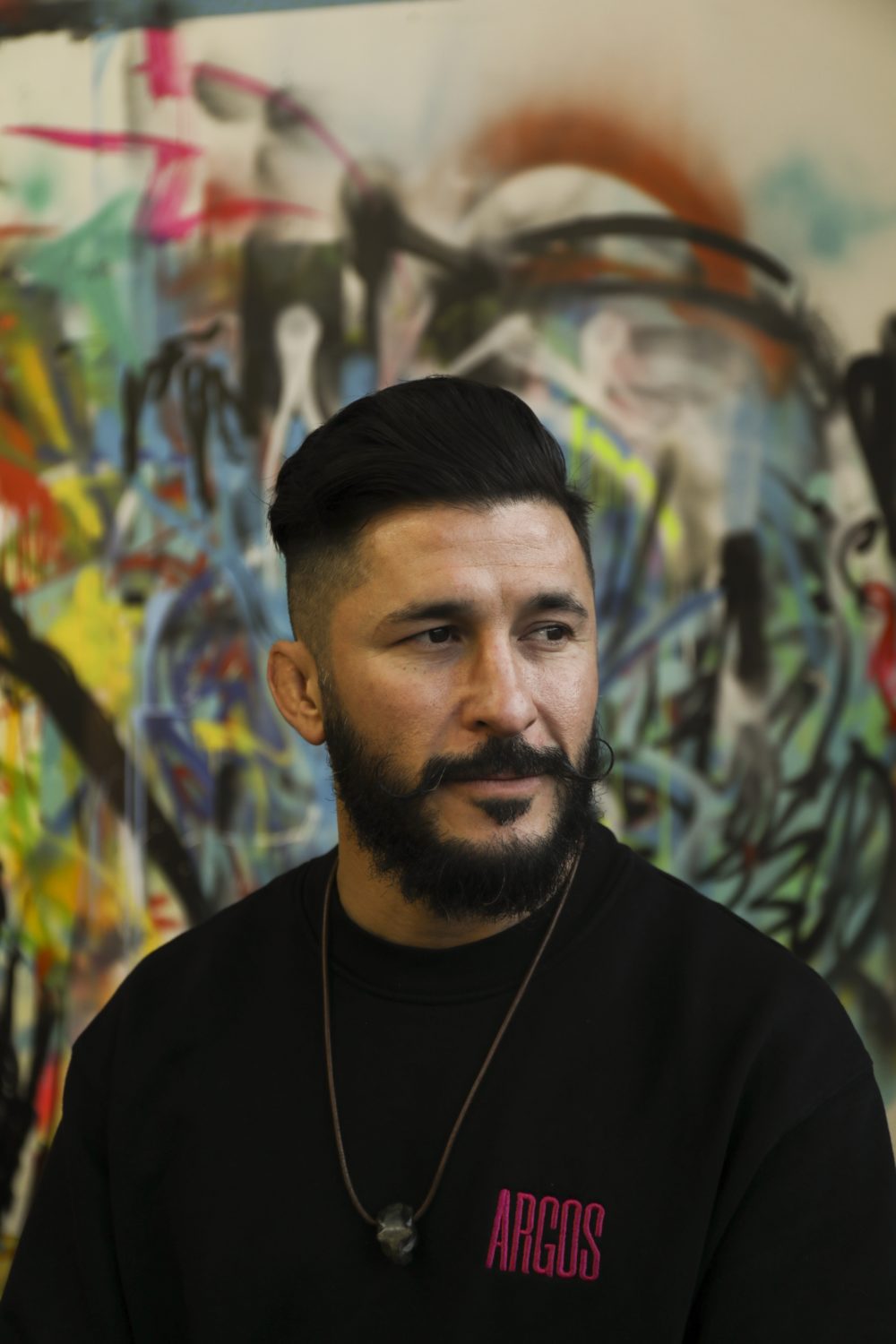
“There’s no tryptamine profile. You can take the whole tin and you’re going to get high like a Xanax body high, but in a very, very good mental state,” McCall said of Argos work. “But you’re never going to get that fucked up. These are meant for soccer moms; these are meant for kids in school who don’t want to do Adderall.”
While McCall plans on working with more psychedelically active compounds and takes part in them at the request of his clients while not actually acquiring the substances himself, he thinks there is a place for creating the mechanisms that reach the widest audience possible.
“Yes, we are making formulated products that will get you high as shit, it’s part of the market,” McCall said. “But it’s a bigger audience that I’m trying to reach so I can help as many people as possible.”
McCall has faced many doubters on his quest to spread healing to others. Even the people that helped him get the idea off the ground thought he was crazy. He isn’t a doctor or a scientist, and time and time again they wanted to make sure he knew that. McCall would counter that on top of his research, he’s also lived it.
But nothing helps silence the haters quite like data. After some hiccups domestically, McCall will be working with the Imperial College of London to do research backing his methodology. He needs to raise $300,000 for the effort. In the process of the research, he hoped to develop another wave of people who will help share the McCall Method with others.
“I get to take 15 of my best friends from fighting and I get to heal them. I get to help them heal themselves and then teach them a bunch of modalities. And then hopefully there’ll be coaches for me,” McCall said.
McCall doesn’t expect funding to be an issue between his SoCal ties and the NFT and Crypto communities he’s connected in. Many of the big winners in crypto were just people who held on to their bitcoin change from buying acid online in the early 2010s, so he should do well attempting to pull support from that space.
Additionally, McCall is serving as the Director of Psychedelic Advocacy for Better U, an online ketamine therapy company. The company is building out a ketamine integration coach program similar to something you might see for other web-based certifications.
Finally, we asked McCall to let us play devil’s advocate for a second. What would he say to a shaman who might ask why his process is better than those developed over the millennia indigenous peoples have used psychedelics for healing.
“It’s not better,” he replied. “I have to have certain parameters for the scientific industry, for the medical industry, for all this sort of stuff. If I had my way, I would not have to do all this. People would just believe me and I’d say, ok we’re taking groups of people down to the jungle and we’re going to do some deep healing.”
Advertising disclosure: We may receive compensation for some of the links in our stories. Thank you for supporting LA Weekly and our advertisers.

